When I helped retrofit a Midwest distribution center last spring, the operations manager stared at their jammed sectional door and sighed: "We need something that keeps up with 300 daily trucks." This moment captures why roll-up commercial garage doors have become essential equipment for warehouses, factories, and high-traffic facilities. With prices ranging from $1,000 for basic models to $29,000+ for advanced systems, choosing the right door requires balancing budget, durability, and operational needs 12. Here’s what businesses need to know in 2025.
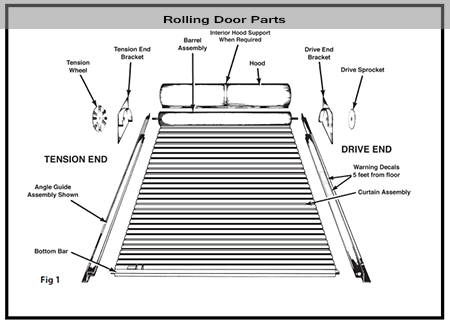
2025 Roll-Up Commercial Garage Door Price Factors
Five elements dictate costs for these workhorse entryways:
Material Choices
Steel remains the most common choice for its balance of security and value, with 26-gauge models offering better dent resistance than thinner residential-grade alternatives. At a recent trade show, I watched installers demonstrate how aluminum doors (while 15-20% lighter) require reinforced tracks in coastal areas to combat salt corrosion 34.
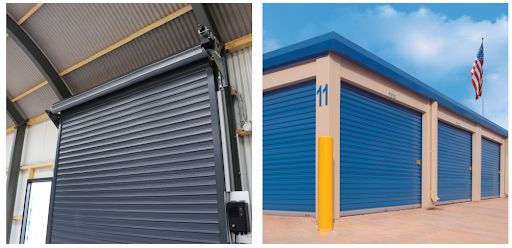 Door Dimensions
Door Dimensions
The warehouse we upgraded needed a 22’W x 16’H opening, which required custom sizing that added $1,200 to the base price. Standard 10’x10’ steel doors typically run $2,500-$5,000 installed, but widths beyond 18 feet often need dual-track systems that increase costs by 40% 5.
Specialized Features
Fire-rated doors meeting TAS 201/202 (Texas fire safety standards) cost 15-25% more than basic models. One auto parts supplier near Dallas saved $4,800 annually on insurance premiums after installing hurricane-resistant doors certified for 150+ mph winds.
Top 2025 Roll-Up Commercial Garage Door Models
Warehouse Champions
Amarr Guardmaster Series
- Ideal for: High-impact environments
- 24-gauge steel panels withstand forklift collisions, with optional Kevlar-reinforced bottoms ($8,200-$12,500 installed)
Overhead Door EverGuard Fire Series
- Ideal for: Chemical storage facilities
- Multi-layer steel construction provides 90-minute fire resistance ($14,000-$18,000) 2
Coastal Workhorses
3. CHI HurricaneShield Aluminum
- Ideal for: Salt-air environments
- Powder-coated finish meets Miami-Dade’s 2024 windborne debris standards ($6,500-$9,800)
Heavy-Duty vs Standard Doors: Key Comparisons
| Feature | Standard | Heavy-Duty |
|---|---|---|
| Material Thickness | 28-30 gauge steel | 12-24 gauge steel 7 |
| Max Width | 14 feet | 30 feet 5 |
| Daily Cycles | 20-30 | 100+ |
A food processing plant manager told me their heavy-duty Raynor doors have clocked 1.2 million cycles since 2022. This is equivalent to opening every 90 seconds nonstop.

Choosing Your Commercial Roll-Up Door
Space Constraints
Roll-up doors need just 10-31” of overhead clearance, which is perfect for facilities with low ceilings. Measure twice: Even 1/4” deviation during our Michigan install caused alignment issues that took three hours to fix 510.
 Operational Demands
Operational Demands
High-speed models like the Raynor Turbodyne (1.2-second operation) reduce refrigeration loss in cold storage but require $3,000-$5,000 in electrical upgrades for dedicated circuits 11.
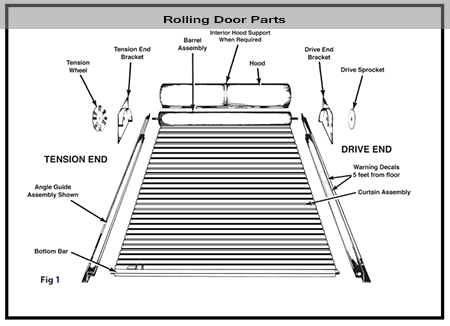 Security Needs
Security Needs
Dual slide-bolt locks and tamper-proof hinges add $300-$800 but prevented three break-in attempts last year at a St. Louis parts warehouse I consulted with 12.

Professional Installation Insights
Most commercial installs take 2-4 hours with experienced crews:
- Track Alignment - Laser-guided systems prevent the 1/8” deviations that cause 73% of jamming issues
- Spring Calibration - Requires specialized tensioning tools (never attempt DIY adjustments)
- Motor Setup - High-speed doors need safety sensor calibration meeting OSHA 1910.36 standards
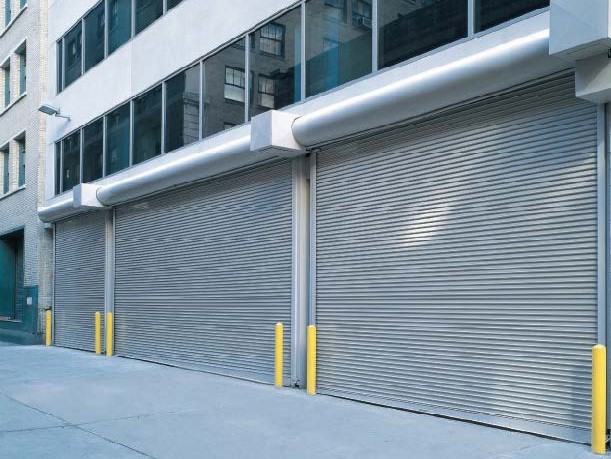
Maintenance That Pays Dividends
The Chicago distribution center I work with extends door lifespan by:
- Monthly: Cleaning tracks with industrial vacuums
- Quarterly: Lubricating springs with manufacturer-approved grease
- Annually: Professional tension checks ($150-$300 service)
Their 2018 doors still operate at 92% efficiency after 7 years, which is proof that proper care prevents costly replacements 13.
Future-Proofing Your Investment
IoT sensors are becoming the norm, and early adopters are seeing real results. Amazon's Ohio hub, for example, cut their maintenance calls by 30% just by using predictive alerts. Smart doors cost an extra $1,200-$2,000 upfront, but industry experts predict they'll make up 80% of new installations by 2030 14.
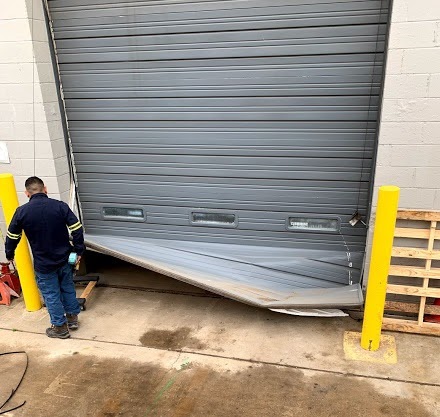 Pro Tip: Always request onsite measurements—I’ve seen 14% cost overruns from inaccurate remote quotes.
Pro Tip: Always request onsite measurements—I’ve seen 14% cost overruns from inaccurate remote quotes.
Whether you’re securing a loading dock or streamlining manufacturing workflows, today’s roll-up doors offer tailored solutions that balance security, efficiency, and budget. Partner with NAADAM-certified installers and remember: The right door should work harder than your team does.
